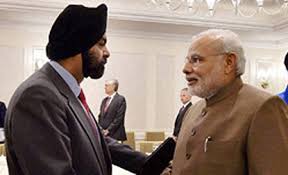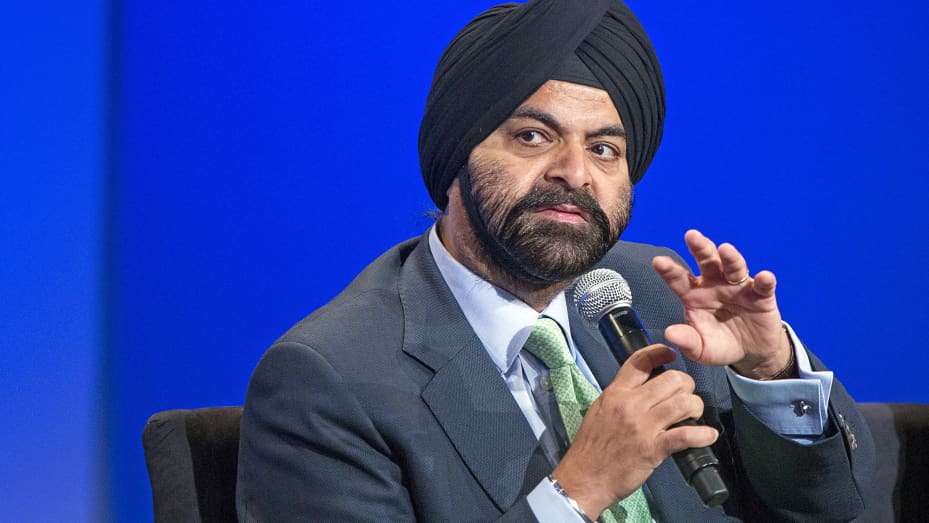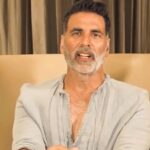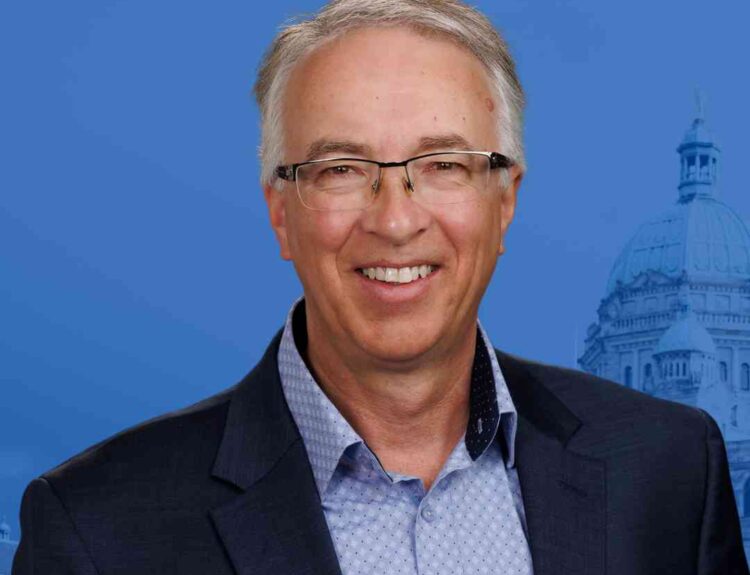President Joe Biden has picked former Mastercard CEO Ajay Banga to head World Bank but activists and progressive groups are not very happy with the choice of a former Wall Street and corporate executive as more of the same at the anti-poverty lender. Washington’s selection of former Mastercard Inc. Chief Executive Officer Ajay Banga to be the World Bank’s president was being condemned as a forfeited opportunity to tap a candidate with deep public-sector experience combating economic inequality and climate change.
NEW YORK – President Joe Biden has picked former Mastercard CEO Ajay Banga to head World Bank but activists and progressive groups are not very happy with the choice of a former Wall Street and corporate executive as more of the same at the anti-poverty lender.
Washington’s selection of former Mastercard Inc. Chief Executive Officer Ajay Banga to be the World Bank’s president was being condemned as a forfeited opportunity to tap a candidate with deep public-sector experience combating economic inequality and climate change.
The World Bank needs a leader “who will prioritize the urgency of the climate crisis, not another big business executive,” said Collin Rees, US program co-manager at Oil Change International, a group that pushes a pivot away from fossil fuels. “Banga’s long career at predatory banks and corporations does not inspire confidence that he would transform the World Bank into an institution that can work for people and the planet.”
To be sure, Banga’s selection drew praise from supporters who said the 63-year-old raised in India brings a different perspective to an institution whose leaders typically have been deeply embedded in the US. US Treasury Secretary Janet Yellen on Thursday said Banga’s track record “forging partnerships between the public sector, private sector and nonprofits uniquely equips him to help mobilize the private capital and press for the reforms needed to meet our shared ambitions.”

And John Kerry, the US special presidential envoy for climate, hailed Banga as “the right choice,” casting his corporate experience as an asset. Mr Banga has “proven his ability as a manager of large institutions and understands investment and the mobilization of capital to power the green transition,” he said.
But climate activists and progressive groups said Banga still hews too closely to the typical mold of male World Bank presidents with deep ties to Wall Street and corporate America, including its current head, David Malpass, who previously was a chief economist at Bear Stearns Cos. Mr Banga, now vice chairman at US investment firm General Atlantic LP., has previously worked for Nestle SA, PepsiCo Inc., and Citigroup Inc.
“Nothing in Banga’s resume inspires confidence that he will turn the World Bank away from a path of neocolonialism and predation by Global North corporations upon Global South countries,” said Jeff Hauser, executive director of the Revolving Door Project, a not-for-profit group that fights corporate influence in Washington.
The son of an officer in the Indian Army, Banga spent his childhood moving around the country. He graduated from Delhi University with a bachelor’s degree in economics.
Banga, 63, is known for his love of fine wines and once told the Financial Times he owns “practically every Elvis Presley album that you could think of.” He’s also a fan of composer and record producer Quincy Jones, pop musician Lady Gaga and the New York Mets baseball team.
Banga began his career at Nestle SA, where he spent more than a decade in sales, marketing and management roles before moving to PepsiCo Inc, where he helped launch the company’s fast-food franchises in India. In 1996, he joined Citigroup Inc.

He rose through the ranks quickly at Citigroup, which, at that time, was the largest financial institution in the world. In just four years, he was named business head of CitiFinancial and the US consumer-assets division, and, in 2005, was promoted to lead all of the bank’s international consumer operations.
In 2008, Citigroup named Banga head of its Asia-Pacific region, a role that gave him oversight of every single business line — from credit cards to institutional banking — in a geography spanning from Japan to India. Inside the bank, he was considered a candidate to ultimately take over as CEO one day.
So it came as a shock in 2009 when Banga announced he was moving to Mastercard to become the payment network’s president and chief operating officer. Less than a year later, the Purchase, a New York-based company promoted him to CEO.
Banga led Mastercard through a period of explosive growth, with purchase volume on the firm’s network more than doubling during his 10 years atop the company. Revenue and earnings nearly tripled during that time.
After his departure as Mastercard’s CEO, Banga took over as executive chairman in January 2021 and spent much of the ensuing year helping then-new CEO Michael Miebach assume responsibility for key relationships with customers and regulators. Banga joined the US investment firm General Atlantic as vice chairman at the end of 2021.
















7 Comments
eco bij
1 year agoHey! Do you know if they make any plugins to help with SEO?
I’m trying to get my blog to rank for some targeted keywords but I’m not seeing very good results.
If you know of any please share. Many thanks!
You can read similar text here: Eco bij
Stan Store alternatives
11 months agoI’m extremely impressed along with your writing abilities and also with the structure in your blog. Is that this a paid subject matter or did you customize it your self? Either way stay up the nice quality writing, it is rare to peer a great blog like this one these days. I like desibuzzbc.com !
Pasty
11 months agoI’m really inspired along with your writing abilities and also with the structure for your blog. Is this a paid theme or did you modify it your self? Either way keep up the nice high quality writing, it is rare to peer a great blog like this one these days. I like desibuzzbc.com ! My is: BrandWell
Military Police Badges
3 months agoGreat advice! I’ll definitely be implementing some of these tips.
Sheriff Badge
3 months agoWell done! This article provides a lot of value.
fdertol mrtokev
2 weeks agoHeya i’m for the first time here. I came across this board and I to find It really helpful & it helped me out a lot. I’m hoping to give something again and help others like you helped me.
more info here
2 days agoI’m now not certain where you’re getting your information, but good topic. I must spend a while finding out more or understanding more. Thank you for wonderful info I was on the lookout for this information for my mission.